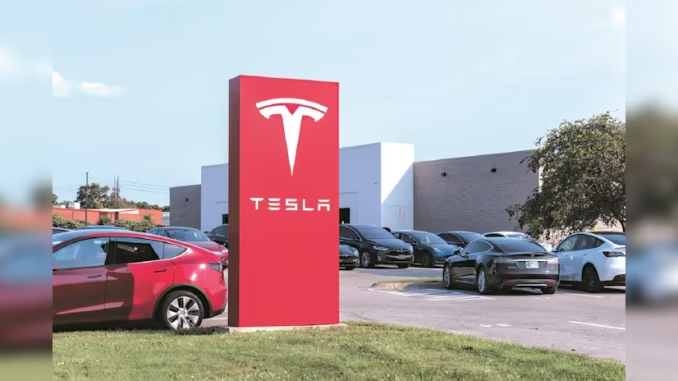
In 2025, Tesla, the once unchallenged trailblazer of the electric vehicle revolution, found itself at the center of a political and consumer backlash in Europe. What began as a series of controversial statements and affiliations by its CEO, Elon Musk, quickly snowballed into what many are calling an informal boycott of Tesla cars across the European Union. This dramatic shift, unfolding in the wake of Donald Trump’s return to the U.S. presidency, marks one of the most turbulent times in Tesla’s European journey.
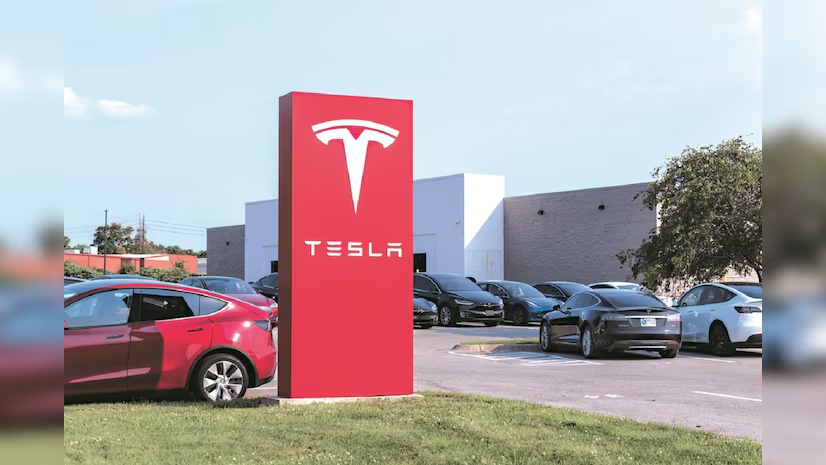
A Sharp Shift in Sentiment
For years, Tesla enjoyed a strong presence in Europe. The brand was synonymous with innovation, green technology, and a futuristic vision of mobility. Its cars were popular among progressive and environmentally conscious consumers, and its European Gigafactory in Germany stood as a symbol of international collaboration in the EV sector.
However, in early 2025, cracks began to appear. Tesla’s decline in popularity wasn’t due to faulty products, slowing innovation, or stronger competition alone. It was, unusually, political.
Elon Musk and the Trump Effect
Elon Musk, already a controversial figure known for his unfiltered social media presence, became closely associated with Donald Trump’s new administration in the United States. Serving as a key advisor on technology and economic policy, Musk’s influence in the White House was undeniable.
But what particularly rattled European consumers and policymakers were Musk’s increasingly vocal political stances, including his public endorsements of far-right political parties in Europe—most notably, Germany’s Alternative for Germany (AfD) and similar nationalist movements in France, Italy, and the Netherlands. These endorsements were seen as deeply misaligned with the values of many European consumers who cherish democratic norms, social equity, and inclusivity.
The situation worsened when Musk commented on European immigration policies and supported rhetoric that many across the EU viewed as xenophobic and divisive. In nations like Germany and France, where historical memory and cultural values run deep, the backlash was swift and severe.
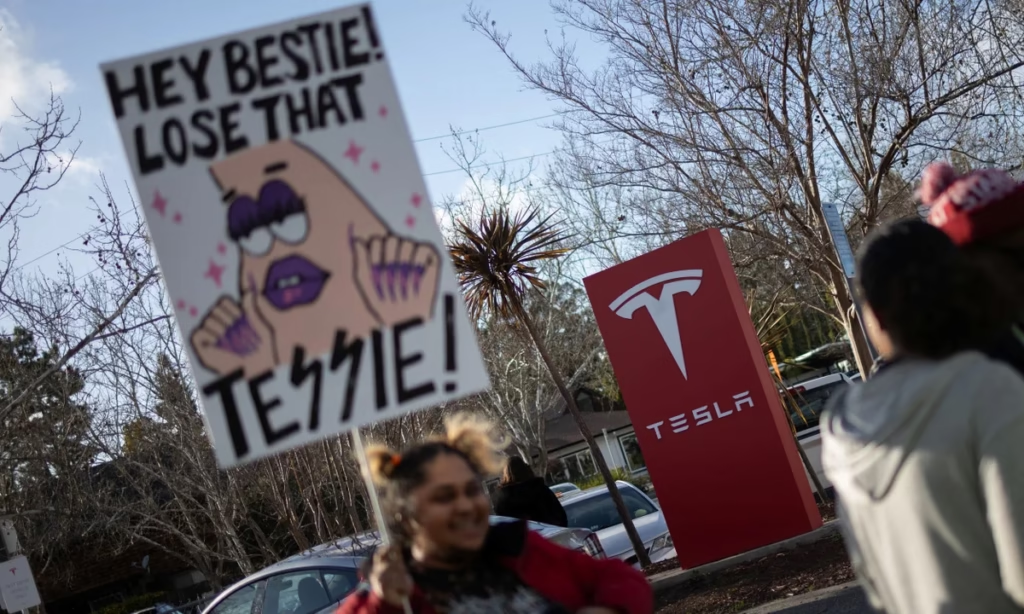
Consumer Pushback and Sales Slump
The public response in Europe was significant. Social media platforms across the continent began to trend with hashtags calling for boycotts of Tesla. Influencers, EV enthusiasts, and even some politicians urged consumers to choose alternative EV brands that aligned better with European values.
Tesla’s sales figures reflected the shift almost immediately. In January 2025, Tesla saw a steep drop in vehicle registrations across major markets. In Germany, sales hit their lowest monthly total in years. France and the UK saw similar patterns, with Tesla losing market share to Chinese automakers like BYD and European competitors like Volkswagen and Renault.
For the first time in several years, Tesla’s position as a top EV seller in Europe was seriously challenged—not due to lack of innovation, but due to political alignment and perceived social values.
Beyond Sales: Policy and Business Consequences
This consumer backlash didn’t remain confined to private individuals. European governments began to distance themselves from Tesla as well. In Germany, lawmakers questioned subsidies and tax breaks provided to the Tesla Gigafactory. Environmental regulators, who had previously fast-tracked approvals for the factory’s expansion, began demanding more stringent reviews.
In France, calls grew to investigate whether Tesla’s local offices were engaging in lobbying that conflicted with national interests. Elsewhere, cities like Amsterdam and Barcelona began considering whether Tesla vehicles should remain part of publicly funded fleet programs.
Though not a formal government-imposed boycott, the sentiment was clear: Tesla was losing favor among both the people and the policymakers of Europe.
The Rise of Alternatives
As Tesla struggled, other EV makers seized the moment. Chinese brands, already making aggressive pushes into Europe, offered more affordable and politically neutral alternatives. European carmakers, armed with strong local support and consumer trust, introduced competitive models that appealed to eco-conscious buyers without any political baggage.
This shift also reflected a broader evolution in the EV market. Where Tesla once had near-monopoly status as a desirable electric vehicle, the playing field had leveled. By 2025, quality, price, and ethics mattered just as much as brand recognition.
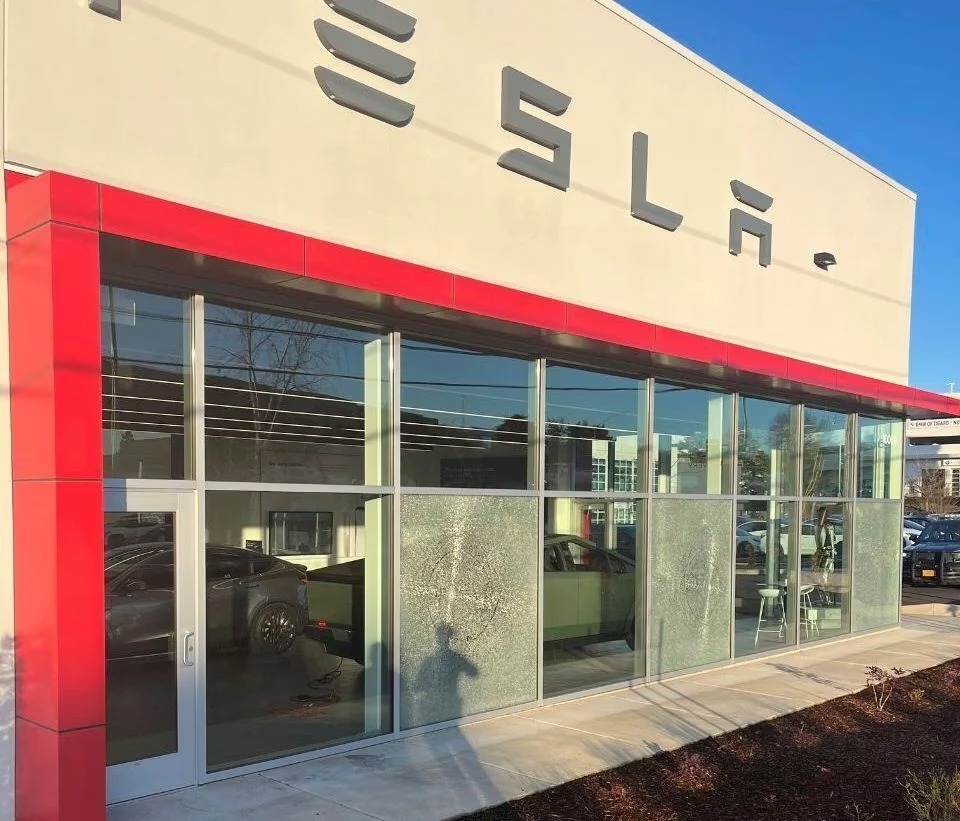
Musk’s Response – and Its Limits
Elon Musk did respond to the backlash, mostly via social media. He dismissed the criticisms as overblown and claimed that his values supported free speech and innovation. But his responses, often laced with sarcasm and confrontation, did little to soothe concerns in Europe. If anything, they deepened the divide, reinforcing the perception that Tesla’s leadership was out of touch with European sensibilities.
Within Tesla, internal debates reportedly intensified. Some executives pushed for a more neutral public stance and for European leadership to be more autonomous. However, with Musk’s strong grip on the company’s direction and public image, any significant shift remained unlikely.
A Lesson in Global Branding
The situation Tesla faced in Europe in 2025 offers a powerful lesson in global branding: success in one market does not guarantee immunity in another, especially when political affiliations come into play. For Tesla, the challenge was no longer just to innovate technologically—it now had to navigate the complex web of international public perception and political sensitivity.
In a world where consumers are increasingly value-driven, brand identity is about more than just products—it’s about what a company represents. For Tesla, a brand that once stood for sustainable innovation and a cleaner future, the political entanglements of its CEO posed a direct threat to its market position, especially in regions like the European Union where civic values hold high importance.
What’s Next?
As the year unfolds, Tesla’s future in Europe remains uncertain. Can the company regain the trust of European consumers? Will it choose to distance itself from political controversies or continue down its current path? The answers to these questions will shape not only Tesla’s European presence but also serve as a case study for how deeply political identity can impact a global brand.
One thing is clear: in 2025, Tesla’s biggest challenge in Europe isn’t a lack of innovation—it’s a crisis of identity.
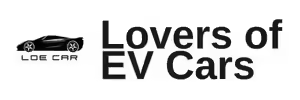
Leave a Reply